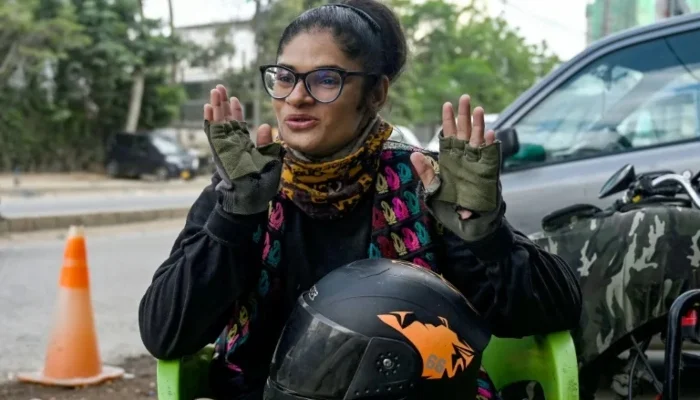Amid Pakistan’s economic turmoil, women like Amina Sohail are making waves.
Sohail, the first woman in her family to work, now navigates Karachi’s traffic as a ride-hailing driver.
“I focus on my work, ignoring the stares,” says Sohail, whose job has provided her family with a much-needed income.
With Pakistan struggling through inflation and a cycle of financial instability, many women are stepping into the workforce.
Traditional expectations often conflict with this shift. For instance, Hina Saleem, a telephone operator in Karachi, faced family resistance but remains determined to support her family after her father’s death.
Young women like Anum Shahzadi and Zahra Afzal are also seizing opportunities, challenging societal norms. Shahzadi contributes financially alongside her brother, while Afzal’s choice to work as a childminder in Karachi symbolizes broader shifts in gender roles.
Bushra Khaliq of Women In Struggle for Empowerment (WISE) notes that the economic crunch is driving women to pursue independence, despite traditional pressures.
Farzana Augustine, who started working at 43, reflects on the evolving role of women: “We are companions and running our house together.” S/8
As Pakistan navigates its economic crisis, these women are redefining their roles, proving resilience and adaptability in the face of adversity.

